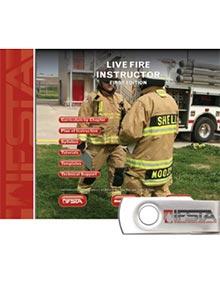

Live Fire Instructor, First Edition Manual
New $59 to $69
This manual serves as a structured template for instructors tasked with the responsibility of facilitating live fire training. Live fire training requires instructors strictly follow guidelines and mandates due to the potential of injury or death among participants. This manual has been constructed to meet current recognized guidelines and practices in the field, with a specific focus on leadership, safety and supervision.
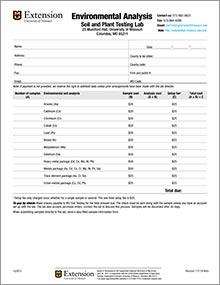
Environmental analysis information form
Revised
This testing is intended to analyze nutrients and metals in the soil in your growing environment. Complete and submit this form along with your samples.
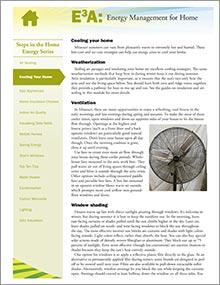
E3A Home Energy: Cooling Your Home
Reviewed
Editor’s note
The following abstract describes a publication that is only available as a downloadable PDF.

E3A Solar Hot Water: System Sizing
Reviewed
Editor’s note
The following abstract describes a publication that is only available as a downloadable PDF.

E3A Solar Electricity: System Options
Reviewed
Learn about the four most common solar electric system options: grid-connected systems with or without batteries, off-grid systems and PV-direct systems.
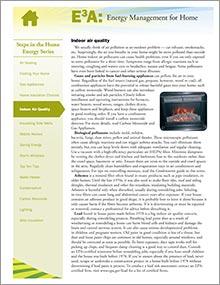
E3A Home Energy: Indoor Air Quality
Reviewed
Editor’s note
The following abstract describes a publication that is only available as a downloadable PDF.
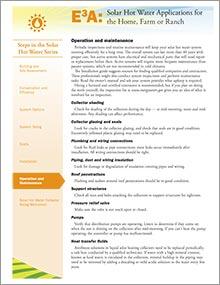
E3A Solar Hot Water: Operation and Maintenance
Reviewed
Editor’s note
The following abstract describes a publication that is only available as a downloadable PDF.

E3A Solar Electricity: Costs
Reviewed
Learn about the costs of a solar electric system, how to estimate cost savings and simple payback for a net-metered photovoltaic (PV) system, and more.

E3A Solar Electricity: Electricity Use Worksheet
Reviewed
Use this electricity-use worksheet to estimate your energy use and help you determine what size solar electric system would meet your energy needs.

E3A Home Energy: Mobile Homes
Reviewed
Editor’s note
The following abstract describes a publication that is only available as a downloadable PDF.
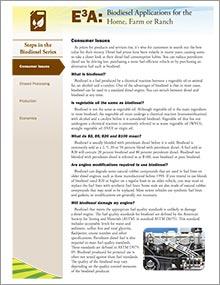
E3A Biodiesel: Consumer Issues
Reviewed
Editor’s note
The following abstract describes a publication that is only available as a downloadable PDF.

E3A Home Energy: Water Heater
Reviewed
Editor’s note
The following abstract describes a publication that is only available as a downloadable PDF.
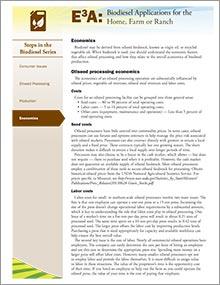
E3A Biodiesel: Economics
Reviewed
Editor’s note
The following abstract describes a publication that is only available as a downloadable PDF.

Fire and Emergency Services Company Officer, Sixth Edition Manual
New $67 to $79
This manual provides emergency services personnel with skills needed to reach the performance requirements of NFPA 1021. The text is written for Level I and Level II fire officers and fire officer candidates. Its goal is to provide candidates and current company officers with the knowledge needed to develop safe, efficient and effective leadership skills.
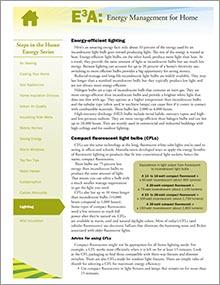
E3A Home Energy: Energy-Efficient Lighting
Reviewed
Editor’s note
The following abstract describes a publication that is only available as a downloadable PDF.
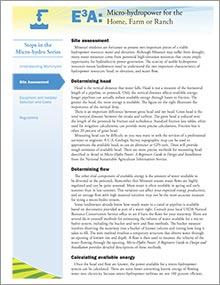
E3A Micro-hydro: Site Assessment
Reviewed
Missourians are fortunate to possess two important pieces of a viable hydropower resource: water and elevation. Learn about these two important characteristics of hydropower in this guide.

E3A Understanding Energy: Net Metering Electrical Energy Generators
Reviewed
Editor’s note
The following abstract describes a publication that is only available as a downloadable PDF.
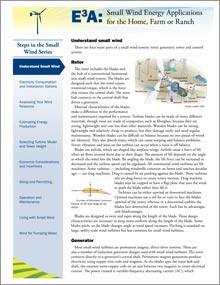
E3A Small Wind: Understand Small Wind
Reviewed
Editor’s note
The following abstract describes a publication that is only available as a downloadable PDF.

E3A Understanding Energy: Understanding Your Energy Consumption and Expenses
Reviewed
Editor’s note
The following abstract describes a publication that is only available as a downloadable PDF.
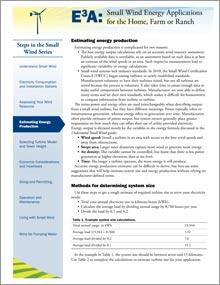
E3A Small Wind: Estimating Energy Production
Reviewed
Editor’s note
The following abstract describes a publication that is only available as a downloadable PDF.

E3A Understanding Energy: Importance Scale of Alternative Energy Objectives
Reviewed
Editor’s note
The following abstract describes a publication that is only available as a downloadable PDF.
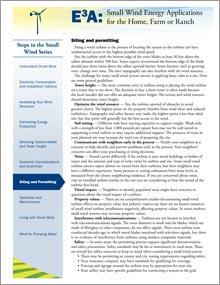
E3A Small Wind: Siting and Permitting
Reviewed
Editor’s note
The following abstract describes a publication that is only available as a downloadable PDF.
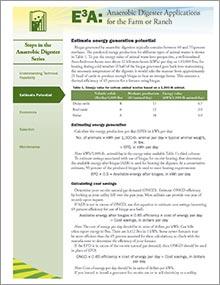
E3A Anaerobic Digesters: Estimate Potential
Reviewed
Editor’s note
The following abstract describes a publication that is only available as a downloadable PDF.
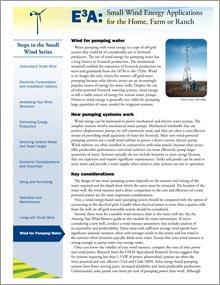
E3A Small Wind: Wind for Pumping Water
Reviewed
Editor’s note
The following abstract describes a publication that is only available as a downloadable PDF.
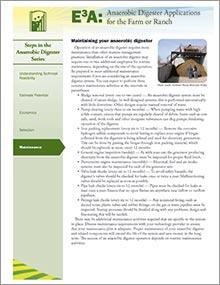
E3A Anaerobic Digesters: Maintenance
Reviewed
Editor’s note
The following abstract describes a publication that is only available as a downloadable PDF.